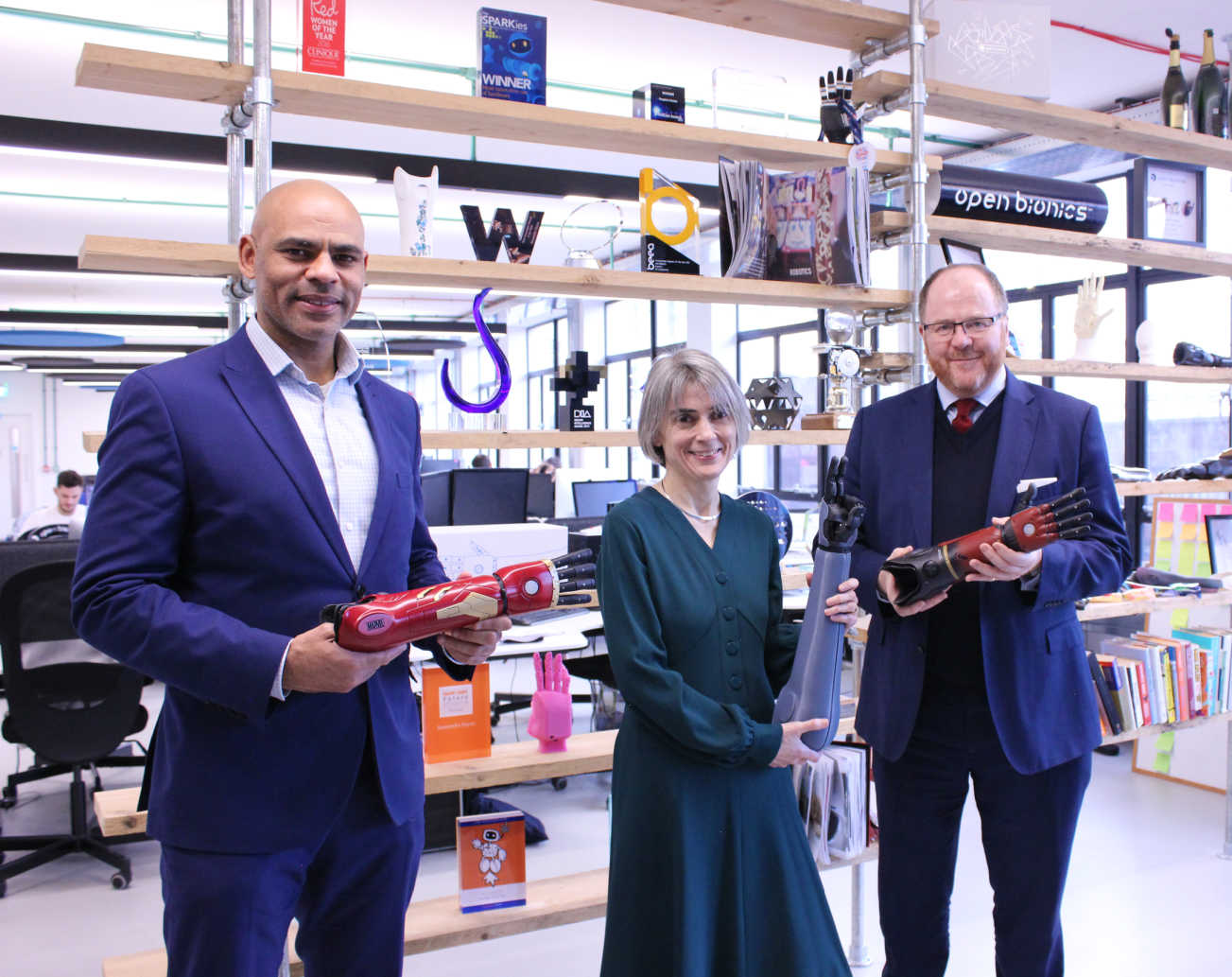Open Bionics Welcomes Minister of Science, Research and Innovation at their Bristol HQ
11th February 2022

11th February 2022

Yesterday, Open Bionics were pleased to welcome Minister George Freeman at their headquarters where the world’s first medically approved 3D printed bionic arm is made. The minister was joined by government officials including Professor Dame Ottoline Leyser, UKRI CEO, Indro Mukerjee, Innovate UK CEO, Jo Shanmugalingam, BEIS Director General, Science, Innovation & Growth and Marvin Rees, Mayor of Bristol.
During their visit, senior officials were shown the production space where the company’s first product, the life-changing Hero Arm for amputees is made using innovative 3D printing technologies. Ministers were also able to ask engineers about how each bionic arm is custom made for adults and children from eight years old, while seeing how 3D scanning, 3D modelling, and automation play a critical part in ensuring the bionic prosthesis fits like a glove and offers optimal comfort.
Minister of Science, Research and Innovation, George Freeman commented “It was fantastic to visit the Bristol cluster today, seeing first hand the excellent work being done in quantum computing, robotics, artificial intelligence and bionics.
“The depth and breadth of UK research excellence, coupled with our financing ecosystem for high growth companies, makes the UK a global powerhouse in innovation.
“Nowhere illustrates that better than the Bristol Gateway Cluster where companies like Open Bionics are combining excellence in robotics, life science, materials, design & advanced manufacturing to develop groundbreaking prosthetics.
Marvin Rees, Mayor of Bristol also remarked “It was fantastic to meet the team at Open Bionics and to showcase some of Bristol’s science and tech innovation during the minister’s visit to our city. A focus on delivering life-changing technology to people who need it at an affordable price sets Open Bionics apart and it was exciting to hear about the new projects they have in the pipeline.”
Samantha Payne, MBE, co-founder of Open Bionics commented “We have welcomed government support and resources to allow us to innovate processes and implement new technologies across the company. However, currently, NHS policy change is still not keeping pace with technological improvements, which means medical devices like the Hero Arm are not accessible to all and have to be privately funded for.”
The company is currently working with dozens of people with upper limb differences in the UK who are actively crowdfunding for their Hero Arms, and hundreds more who are waiting patiently for the NHS to adopt the technology. Some hospital patients who have lost limbs as a result of COVID have been left in a position where they have to launch crowdfunding campaigns from their hospital beds to access technology already available across national health services in Europe, Russia, Australia, and America.